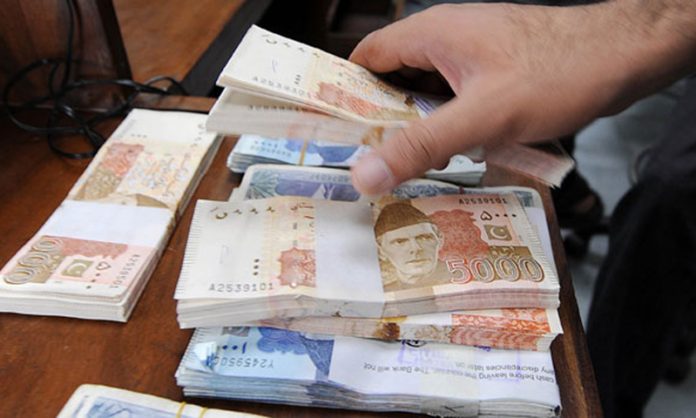The government’s efforts to broaden the tax net by levying the withholding tax seems to have backfired as money in circulation surged by a record high of 31% in the year ended June 2016, Bloomberg reported. Nonetheless, this has not deterred government’s efforts. Ashfaq Tola, a member of Pakistan’s Tax Reforms Commission while speaking to Bloomberg said, “Let them open 36 instead of six bank accounts, they will badly suffer once nabbed. The tax is very much in place and will not be withdrawn as it aims to bring the non-filers into the tax net.”
Withholding tax constitutes as one of the major sources of revenue for the Federal revenue on a national level. The dependence on the tax has been on the rise recently. It constitutes one of the main ways to counter widespread tax avoidance.
According to Bloomberg, Pakistan is home to about 200 million people, the world’s sixth largest population where only about 1 percent are registered, taxpayers. The introduction of the bank charges more than a year ago in a country evoked protests and traders are now looking for ways to evade the tax.
The Pakistani government authorities started charging a levy on every bank transaction above 50,000 rupees ($477) for non filers. As a result of this, many traders have recently started piling up cash at home or using multiple bank accounts to pay suppliers in order to escape the tax bracket.
“No one is ready to send money through banks,” said Muhammad Akram Rana, vice chairman of the All Karachi Trade Union, which represents about 800,000 traders in Pakistan’s largest city. “Ask a party for payment and he would tell you to collect it in person.”
People feel that the withholding tax is unjust as they are already paying enough direct and indirect taxes. Almost everything from fuel to phone credit is levied a tax.
In 2014, the government started charging higher taxes on purchases of cars, property or business class flight tickets as an attempt to make filing income tax returns more attractive.
A year later, the government imposed a 0.6 percent withholding tax rate on non-filers, but a lower rate was then agreed after negotiations to pacify the angry trader community. Last week the reduced rate of 0.4 percent was extended until March 31, according to the Federal Board of Revenue.
Nonetheless, the reduced tax rate has not deterred Pakistanis from using cash transactions. According to Bloomberg’s 15 years tracked data, the amount of currency in circulation rose 31 percent in year ended June 2016, the fastest pace in at least 15 years.
Across Pakistani society tax avoidance is widespread. Bloomberg reports that the country has one of the lowest tax-to-GDP ratios in South Asia despite reforms introduced as part of International Monetary Fund loan program that ended in September such as reducing tax exemptions, broadening the tax base and cutting evasion.
According to Rehmatullah Khan Wazir, a member of Federal Board of Revenue, in response to a target of 1 million traders to voluntary register with the tax authorities, only about 10,000 traders have registered with the tax authority.
Speaking at a Bloomberg forum in November, Pakistan’s central bank Governor Ashraf Mahmood Wathra called India’s method of tackling tax evasion“extreme”. Only recently, India’s Prime Minister Narendra Modi invalidated high denomination currency notes. The move created a frenzy among the Indian public who rushed to banks to change their worthless cash. The move is believed to have cut 86% of the currency in circulation, hence having to bring down figures for the country’s growth. Wathra believes that tax avoidance seems “to be written into South Asia’s “DNA, which we need to change.”
Pakistan’s informal industry, which isn’t monitored and taxed, is huge and estimated to be as as much as half the size of the country’s measured $270 billion economy, according to the central bank, citing multiple studies.
However, Pakistan’s tax collection did rise 20 percent in the last fiscal year, but most came disproportionately from businesses that were already existing payers, the central bank said in its annual report.
The imposition of withholding tax has impacted banks as deposits rose by only 10 percent in the last fiscal year, the slowest growth in seven years, although the past six months ending December have witnessed a rise in deposits of 11 percent, according to State Bank of Pakistan data.
“Such measures do not reap immediate fruits and require some time to make an impact,” said Wathra.
According to Saad Khan, deputy research head at Karachi-based IGI Finex Securities Ltd, small scale businesses seem to be impacted heavily by the tax levy as it eats away the already low profit of at most 2 percent. “The challenge to widen the net of tax collection and document more of the economy remains formidable,” said Hasnain Malik, head of frontier-markets strategy at London-based Exotix Partners LLP.




